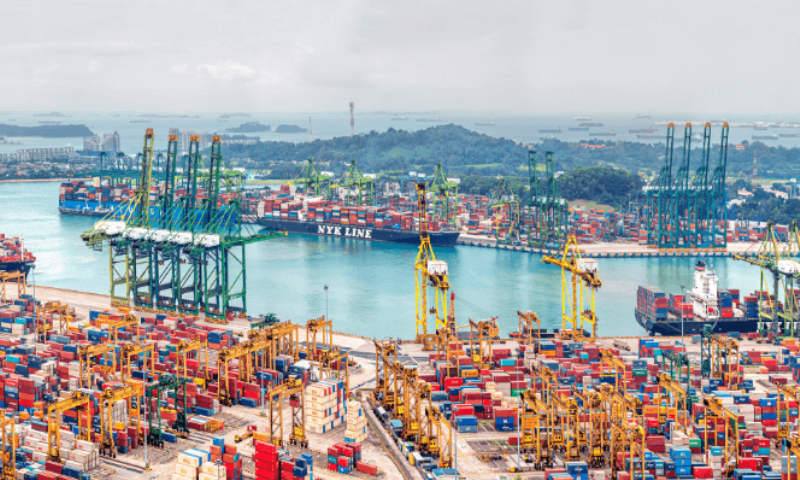Singapore has been named the world’s top container port in the newly released “Leading Container Ports of the World 2025” report, which evaluated 160 ports using 35 performance indicators across five pillars: enablers, connectivity and customer value, productivity, sustainability, and overall impact.
The study—based on objective metrics such as throughput, berth productivity, emissions per TEU, and alternative fuel availability, combined with expert stakeholder assessments—highlights the rapid transformation sweeping across global ports amid rising trade volumes, digitalisation, and climate pressures.
Global container throughput surged to 931.8 million TEUs in 2024, a 7.8% rebound, with Asian ports dominating. Shanghai set a new world record with 51.5 million TEUs, while Singapore handled 41.1 million TEUs, reinforcing its transshipment strength. Emerging economies including India, Türkiye, and Vietnam recorded double-digit growth as supply chains diversified.
Geopolitical disruptions also reshaped trade flows. The Red Sea crisis caused a 56% drop in vessel transits, forcing major carriers to reroute via the Cape of Good Hope, adding up to two weeks to Asia–Europe and Asia–US East Coast voyages.
DNV Maritime CEO Knut Ørbeck-Nilssen noted that adaptive, strategy-driven ports with strong investment in future-ready infrastructure will define the sector’s evolution. The report emphasises the pivotal role of port authorities in shaping sustainable growth and fostering innovation.
Regional leaders include Durban (Africa), Lome (West Africa), Savannah (Gulf of America), Mundra and Colombo (Indian subcontinent), Tanger Med (Mediterranean), Jebel Ali (Middle East), and Sydney (Oceania). Notably, Singapore, Shanghai, and Rotterdam also top the Leading Maritime Cities rankings, underscoring their dominance across both port and city ecosystems.
Menon Economics Chair Dr. Erik Jakobsen highlighted that top performers are integrating automation, digital tools, cleaner energy, and multimodal connectivity—demonstrating that balanced excellence across all pillars, not isolated strength, drives true global leadership.

